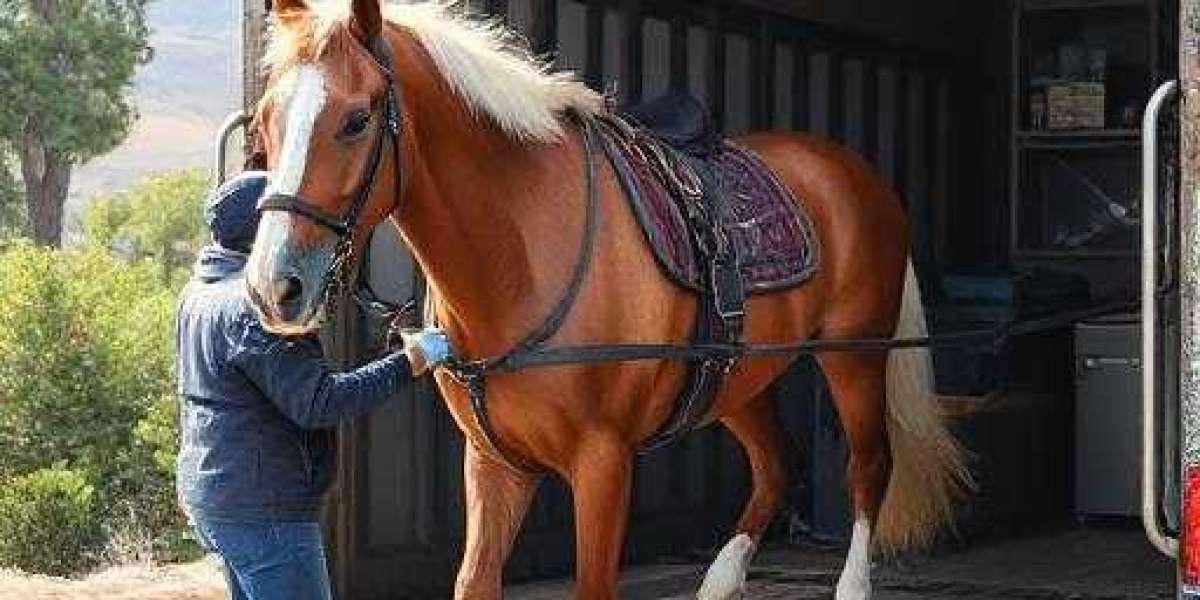Transporting horses is not just about getting from point A to point B — it is a specialized process that demands precision, care, experience, and a deep understanding of the equine mind and body. Horses are sensitive animals, and their welfare during travel is paramount. Whether moving across state lines or relocating across the country, specialized equine transportation services are essential to ensure a horse’s safety, comfort, and well-being.
Understanding Specialized Equine Transportation
Specialized equine transportation refers to the professional, customized, and highly attentive process of transporting horses using purpose-built vehicles, trained handlers, and tailored logistics. Unlike standard livestock hauling, which may treat all animals the same, equine transportation is a niche service that respects the unique requirements of horses.
It is a field where horse care knowledge, veterinary awareness, advanced driving skills, and logistical expertise converge to deliver a seamless experience for both horse and owner.
Why Horses Need Specialized Transport
Horses are more vulnerable during transportation than most other domesticated animals. They are large, flight-prone creatures with sensitive digestive systems and a deep-rooted need for consistency in environment and handling. Even small stresses can lead to serious health complications like colic, dehydration, or shipping fever.
Specialized equine transport minimizes these risks by incorporating:
- Climate-controlled and well-ventilated trailers
- Non-slip, padded flooring for hoof and leg support
- Stall-and-a-half or box stall configurations to allow natural movement
- Frequent stops for checks, feeding, and watering
- Professionally trained equine handlers onboard
All these factors help reduce stress and injury, making the journey as comfortable as possible.
The Role of Expert Handlers
Perhaps the most critical component in specialized horse transport is the human element. Expert handlers are not just drivers—they are horse professionals. They know how to read equine body language, how to approach different breeds and temperaments, and how to respond in case of behavioral or medical emergencies.
Experienced transport teams also know how to introduce horses to trailers properly, how to secure them safely, and how to create a calm and reassuring environment throughout the trip.
Customized Transport Vehicles
The trailers and vehicles used in specialized equine transportation are designed with the horse’s safety and comfort in mind. These are not simple box trucks; they are mobile horse barns complete with cushioned walls, adjustable partitions, temperature control, and air suspension systems to reduce road shock.
Some trailers even have video monitoring systems, allowing handlers to keep an eye on each horse throughout the journey. This level of visibility helps ensure that any issue can be addressed immediately.
Pre-Trip Preparation
Preparation is essential for a successful transport. Before any trip, the transport company will typically:
- Gather detailed information about the horse’s breed, age, medical history, temperament, and dietary needs
- Coordinate with the horse’s veterinarian for any necessary documents or health checks
- Plan routes carefully, avoiding rough terrain and unnecessary stress
- Ensure all gear, tack, and medications are ready and packed appropriately
Owners also play a key role by preparing their horses for transport through desensitization to trailers, reducing feed slightly before travel, and ensuring the animal is well-hydrated.
In-Transit Care
During the journey, horses require regular monitoring. Most specialized transport services include:
- Scheduled rest breaks every few hours
- Feeding and watering at intervals tailored to the horse’s needs
- Mucking out bedding to keep the environment sanitary
- Adjusting ventilation or temperature based on weather conditions
All of these details are meticulously handled to avoid disruptions to the horse’s physical and emotional state.
Post-Trip Recovery and Acclimation
The journey doesn’t end when the trailer doors open. Specialized transport also involves supporting the horse’s acclimation to its new environment. This includes:
- Walking the horse to loosen stiff muscles
- Monitoring vital signs for signs of distress or illness
- Providing clean water and hay immediately
- Allowing quiet rest time before introducing new routines or surroundings
This recovery phase is often overlooked but is vital in ensuring that the transition is successful and stress-free.
Choosing the Right Transport Partner
When selecting a transport service, horse owners should look for:
- Proper licenses and certifications (USDA approval, commercial driving credentials)
- Clean, modern, well-maintained equipment
- Experienced, equine-trained handlers and drivers
- Transparent communication and scheduling
- Strong reviews and referrals from fellow horse owners
Trust and reliability are crucial, as your horse’s welfare is in their hands.
The Emotional Side of Transport
It’s worth acknowledging the emotional connection between horses and their owners. Handing your beloved companion over to a transporter can be a nerve-wracking experience. That’s why specialized equine transportation isn’t just about logistics — it’s about building confidence, trust, and peace of mind.
Professionals in this field understand that each horse is unique and each journey is personal. They approach their work not as a job, but as a responsibility to safeguard the life and spirit of each animal they serve.
The Future of Equine Transportation
As technology advances and the equine industry continues to evolve, so too does specialized horse transport. GPS tracking, biometric monitoring, and eco-friendly vehicles are becoming more common. Some companies even offer real-time video feeds so owners can check in on their horses from anywhere.
These innovations are raising the standard of care and making long-distance travel more feasible for horses of all types, from elite sport competitors to cherished trail companions.
One example of a company that exemplifies these standards is Rocking Y Ranch, which offers exceptional nationwide horse transport with a commitment to quality, safety, and compassion. Their operations reflect the highest level of professionalism in specialized equine transportation.
Conclusion
Transporting horses is a delicate and complex task that goes far beyond basic logistics. Specialized equine transportation is built on a foundation of compassion, precision, and deep respect for the animals being moved. By choosing the right transport partner and understanding what true specialized care entails, owners can ensure their horses arrive safely, comfortably, and ready to thrive in their new surroundings.
Whether it’s a short local move or a cross-country journey, every horse deserves a ride that reflects the dignity and grace of the animal itself.







